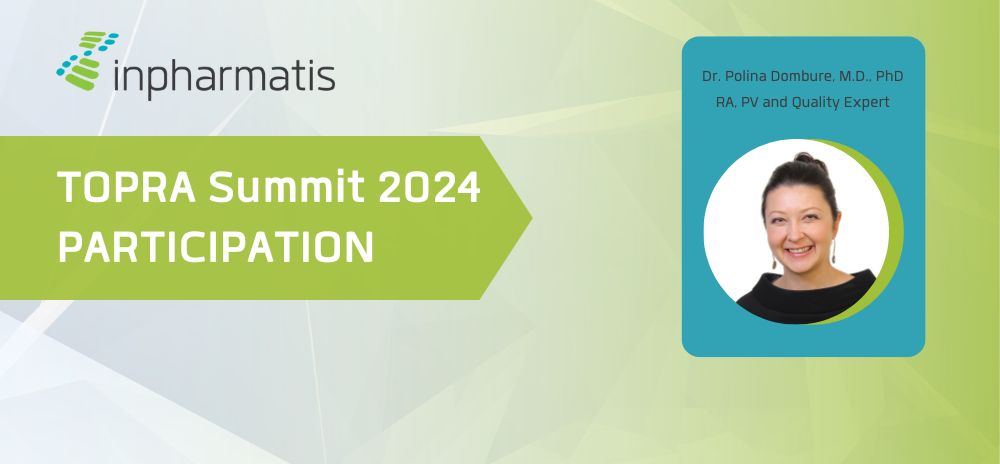Трудности регистрации медицинских изделий в ЕАЭС
March 26, 2024 June 14, 2021
June 14, 2021
New Requirements for Medicine Registration in the EU Will Improve Global Data Exchange Between Pharmaceutical Companies and Regulators
|
|
According to Konstantin Koshechkin, eSolutions Product Owner at Inpharmatis, the changes in the specification of the first electronic dossier module in April 2021 is an important step towards the transition to Identification standards for Medical Products (IDMP). |
According to the expert, the changes adopted by the European Medical Agency (EMA) prescribe the elements included in controlled dictionaries to be used in the formation of the first module of the electronic dossier (eCTD). For this, the SPOR system (short for Substances, Products, Organizations, Referentials) is used, which allows drug manufacturers to manage data both when submitting information as part of an electronic registration dossier, and, for example, during pharmacovigilance.
“The system monitors the quality of data, this allows us to ensure that after entering into one of the controlled dictionaries, the information will not be distorted or duplicated. Today, especially in the countries of the post-Soviet states, there is often a situation when the same drugs are entered into the register several times due to the difference in spelling. The names of organizations are also duplicated due to changes in the form of ownership or peculiarities of the translation. All this requires manual data matching. Implementation of IDMP standards allows avoiding unnecessary expenditures of time and human resources for such work, "- said Konstantin Koshechkin.
The transition to IDMP will have a positive impact on the entire pharmaceutical industry, the expert believes, since the standardization of registration procedures affects the entire life cycle of a medicine, up to dispensing from pharmacies.
“Medicines described by all participants in the pharmaceutical market according to uniform rules will form the basis of the so-called“ Master Data ”- key information characterizing a medicine and identifiers associated with it,” said Konstantin Koshechkin.
The use of IDMP standards will increase the effectiveness of pharmacovigilance by accurately identifying specific drugs, will allow the identification of safety signals, and will provide a global exchange of drug data between regulators and pharmaceutical companies. The standardized description will help to gradually eliminate drug shortages in different regions by improving the identification of pharmaceutically equivalent drugs.
However, according to the expert, the transition to the new requirements for the registration of medicines according to the standards of the European Medical Agency will require manufacturers to use specialized software. In the practice of the European Union, systems developed by EXTEDO (Germany) are used. For example, MPDmanager is a system that simplifies data collection and has full IDMP compatibility. When using the system as part of an integrated software solution for regulatory information management, which is being implemented in the Russian and CIS market by the Inpharmatis group of companies, the official regional representative of EXTEDO, registration data can be reused. Considering that when registering a medicinal product, it is often necessary to make changes to the electronic dossier, the use of such systems allows pharmaceutical companies and regulatory authorities to improve the quality of interaction.
Reference:
IDMP is a set of five standards developed by the International Organization for Standardization (ISO). The standards provide an internationally recognized framework for uniquely identifying and describing medicines with consistent documentation, coding, and the exchange of product information between global regulatory authorities, manufacturers, suppliers, and distributors.
Inpharmatis is an international consulting group of companies headquartered in Riga, Latvia. For more than 15 years, the company has been providing a full range of services in regulatory matters, pharmacovigilance, GMP and GDP audits, user testing of package leaflets, as well as electronic solutions for the pharmaceutical industry and regulatory authorities.


Challenges of Medical Devices Registration in the EAEU
March 26, 2024
Новые поправки к Федеральному закону "Об обращении лекарственных средств" в России
March 13, 2024
New Amendments in Federal Law “On Circulation of Medicines” in Russia
March 13, 2024
В Грузии фармацевтические компании, не предоставившие сертификат GMP, столкнулись с новыми рисками
February 28, 2024
In Georgia, Pharmaceutical Companies That Have Not Provided a GMP Certificate are Facing New Risks
February 28, 2024
Получение GMP сертификата ЕАЭС обязательная процедура
February 21, 2024
EAEU GMP Certificate is Mandatory
February 20, 2024
Полина Домбуре, директор Inpharmatis, приняла участие в TOPRA Summit 2024
February 19, 2024
Dr. Polina Dombure, Inpharmatis CEO, Participated in TOPRA Summit 2024
February 19, 2024